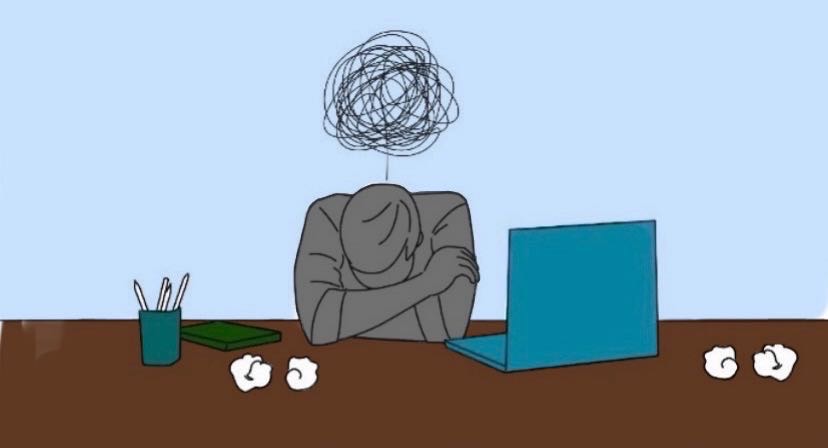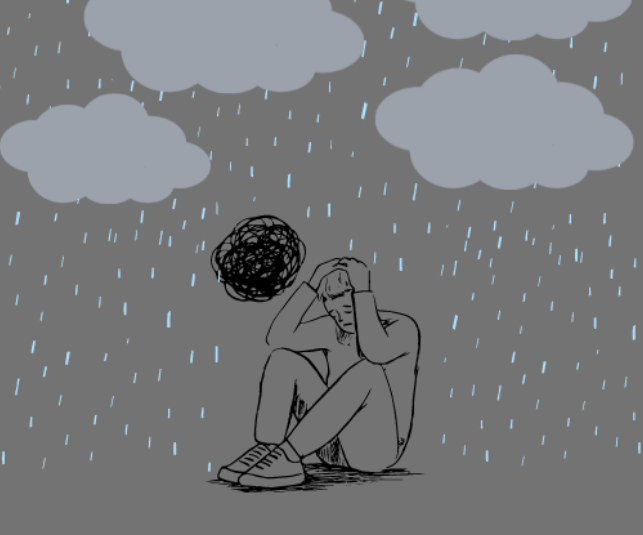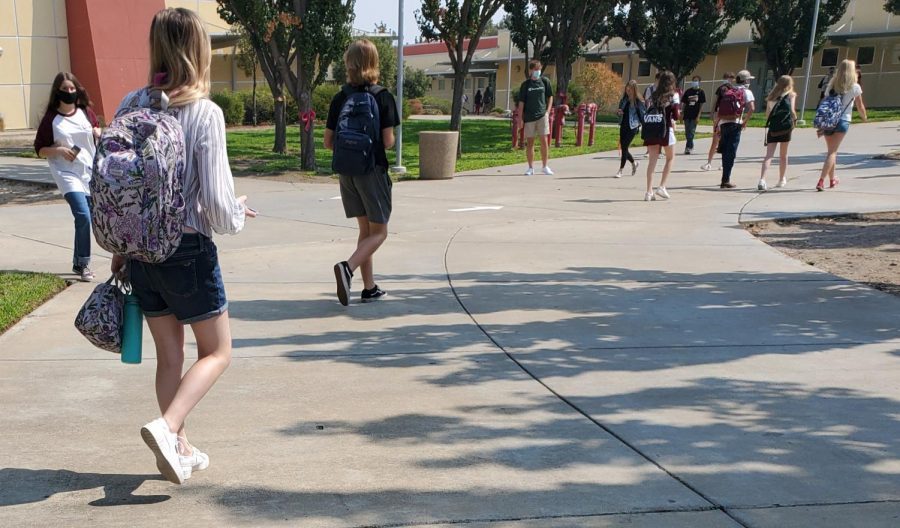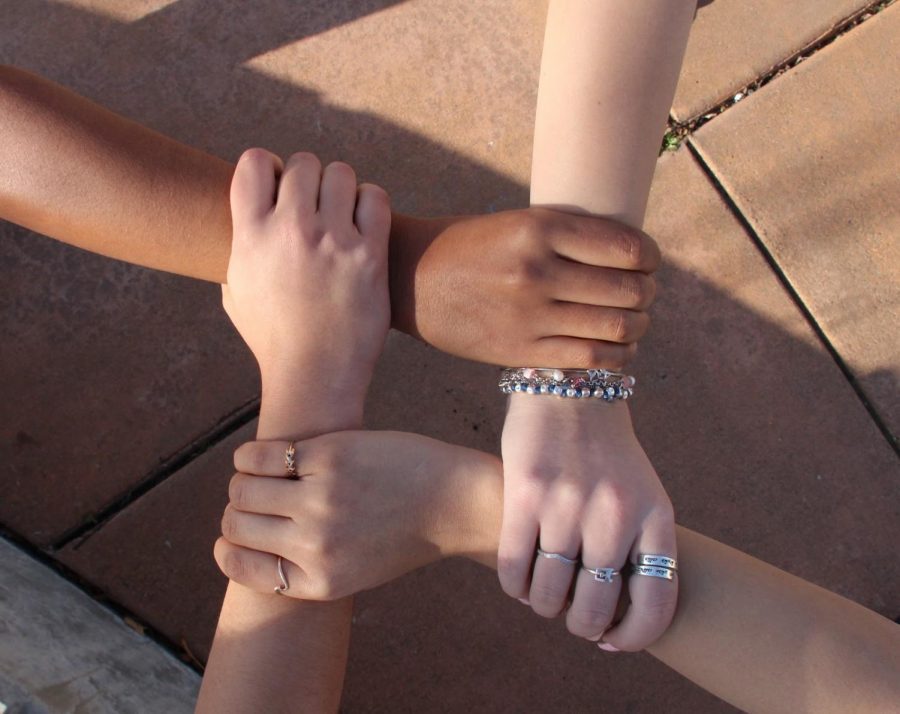Paint a picture of the student that falls asleep during first block, with a pounding headache because they only got an hour of sleep, spending $30 a week on Red Bulls and coffee to keep them awake. This is an issue that all students face at some point in their academic career. Students that don’t get enough sleep at night, create problems for themselves that can cause them to struggle throughout their day.
Getting sleep is very important for teenagers and helps get the body the rest it needs. It benefits the brain and helps them stay focused while also helping your physical and emotional health development, especially during puberty.
“[Reasons students are] falling behind in class is from sleeping, not being focused, not paying attention, not taking notes, and not doing their in class work and then when they go home they’re not motivated even more so to do their work and get caught up so they just fall more and more behind. Ever since we went over to this later start I think the same issues occurred and you know a later start just means they can start up later in their minds when in reality they should be going to sleep earlier and then that way they can wake up earlier and feel more motivated and more energetic in the mornings,” health teacher Mr. Vincent Perez said.
Signs of feeling sleep deprived can often be recognized when students find themselves falling asleep in class, have trouble focusing, feeling irritable or having little interest in doing anything. It can also lead to poor decision making, aggression, drowsiness and anxiety.
Justin Kuo has experienced the effects of being sleep deprived such as having trouble focusing and being more irritable.
“When I am tired, I can become unmotivated to follow along with the instructions in comparison to when I’m more awake. I can [also] definitely be more grumpy with my friends until I’ve taken my nap,” Kuo said.
Being organized can help reduce stress levels, help students get things done and most important of all, getting the sleep needed to properly function. Applying organizational tips into students life can majorly affect your school performance leaving you feeling on top of things. Tips include:
- Developing a routine
- Setting rules for yourself
- Write and create a planner
- Working on one thing at a time
- Setting early deadlines
- Don’t procrastinate
Jake Nelson is a student who only gets three to four hours of sleep each night due to procrastination. “I definitely can’t skate when I’m asleep. I don’t think of things right. It sucks because your balance is more off and you just can and can’t think quick enough and respond fast enough like to catch yourself falling something like that,” Nelson said.
Main things that contribute to an unfulfilled night’s rest can be medical conditions, electronics, sports and homework. Heavy workloads and social media collide, creating sleepless nights which cause exhaustion for many students. Sports can also be another time consuming activity that could be keeping students busy during the day and affecting their focus.
“After soccer practices or games I am tired so it’s harder to concentrate and focus on my homework because I just want to go to sleep,” Addy Webb said. “I’m [also] a perfectionist so I spend too much time on it [than I should be]. I also spend a lot of time on my phone, being on social media because it’s very addicting.”
Lack of sleep reduces a student’s cognitive abilities and harms students’ academic performance, causing them to struggle. Being sleep deprived can also lead to various health problems. Some effects are high blood pressure, diabetes, heart problems and depression. Many students who reported having good sleeping habits avoid these issues. Sticking to a consistent sleep schedule and staying off electronics in the evenings to wind down can improve the quality of sleep.
“I’ve been able to manage straight A’s through high school but I think if I was more caught up on sleep I’d definitely be more efficient in getting my work ahead of time and not having to study super last minute. It has been a contribution to my burnout/senioritis but unfortunately I’ve had so much work I have to stay up so I’d say it’s definitely very draining,” Kuo said.
Main things that contribute to an unfulfilled night’s rest can be things like medical conditions, electronics, sports and homework. Heavy workloads and social media collide creating sleepless nights creating exhaustion for many students. Sports can also be another time consuming event or activity that could be keeping you busy during the day and affecting l focus doing homework after.
“Well I think for the most part I think it has a big factor the kids that are usually sleep deprived from staying up late from stress from jobs they just aren’t as productive and are not as motivated to get their work done and to do well in school so I think it definitely has a big factor in overall performance. I’d say one thing to get better sleep is to make sure there’s no phones in the room and if you do have a TV in your room take it out and again those are factors that will entice you to stay up longer,” Perez said.
Perez made a great point about the factors that go into students’ sleep deprivation. When kids stay up late due to stress or jobs, they become less productive and motivated to do well in school.
Falling behind in class can be caused by lack of sleep, lack of focus, not paying attention, not taking notes, and not completing in-class work. When students go home, their motivation to catch up diminishes, and they fall further behind. Even with a later start time, it’s important for students to prioritize going to bed earlier so they can wake up feeling more motivated and energetic in the morning.
There are also many apps that are available to install to help students sleep such as BetterSleep and ShutEye. They can offer calming sounds that will help with trouble sleeping.
BY IZZY HERNANDEZ & MATEO MARTINEZ







